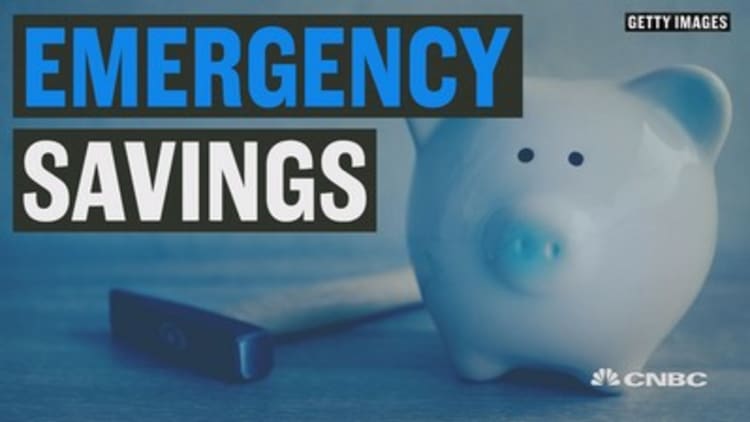
Driving for Uber or selling handmade jewelry on Etsy can be a great way to fill in the gaps in your budget.
Before you pick up a "side hustle," though, make sure it won't affect your main source of income.
To that point, 44 million Americans have some kind of side job or extra source of income in addition to their primary work, according to a survey by Bankrate.com released Wednesday. Younger millennials age 18 to 26 are the most likely age group to do so, the survey found.
It makes sense that millennials would dominate the side-hustle population, said Bankrate's Sarah Berger. They have grown up in the digital age and are more familiar with the apps and technology many gig economy start-ups use. Plus, they have a financial incentive.
"For a generation known for drowning in student debt, it's necessary for millennials to be financially free faster," Berger said.
Before you start that side hustle, it's worth checking to see if there are any restrictions from your primary employer. The terms of your contract or the company's conflict-of-interest policies may limit your options, or if you can have one at all, said Alison Green, blogger for Ask a Manager.
If you're actually not sure it will be fine, frame it as 'Do you see any conflicts here that could pose a problem?'Sarah BergerBankrate.com
"For a lot of jobs, it's perfectly fine to do something on the side, and you wouldn't even need to alert your primary employer," said Green. "But this can vary from job to job and from organization to organization, so you should check your employer's conflict-of-interest policy and any other policy that might be in place about secondary employment."
Play it safe, she said: When in doubt, talk to your boss or HR and review your employee handbook.
"If you're actually not sure it will be fine, frame it as 'Do you see any conflicts here that could pose a problem?''' she said.
How you are classified as an employee can affect your ability to have a secondary job, said Matt Morgan, partner at Nichols Kaster, a Minneapolis-based law firm that specializes in employee rights. So-called exempt employees aren't entitled to overtime pay, and may be expected to be on call or available even during off hours, he said.
"It would seem easier for full-time employees who are nonexempt [i.e., those who get overtime pay] to be able to hold a part-time position," Morgan said.
You should also consider what your long-term ambitions are, said John Challenger of outplacement firm Challenger, Gray & Christmas. If your side hustle doesn't have the potential to be your next career move, it may be more beneficial to focus on snaring that promotion or raise at your main job, he said.
To balance your main and secondary job without burning out, keep your health and well-being in mind as you work, said Berger. Resist the urge to spend that extra hard-earned cash.
"Use that side hustle money to pay down debt or put it in a savings account," she said. "Your primary source of income should take care of fixed expenses; [side hustle money] should be used for investments for your future."
As long as your side gig doesn't conflict with your day job, it's an opportunity to explore how to "turn a passion into a profit," Berger said.






